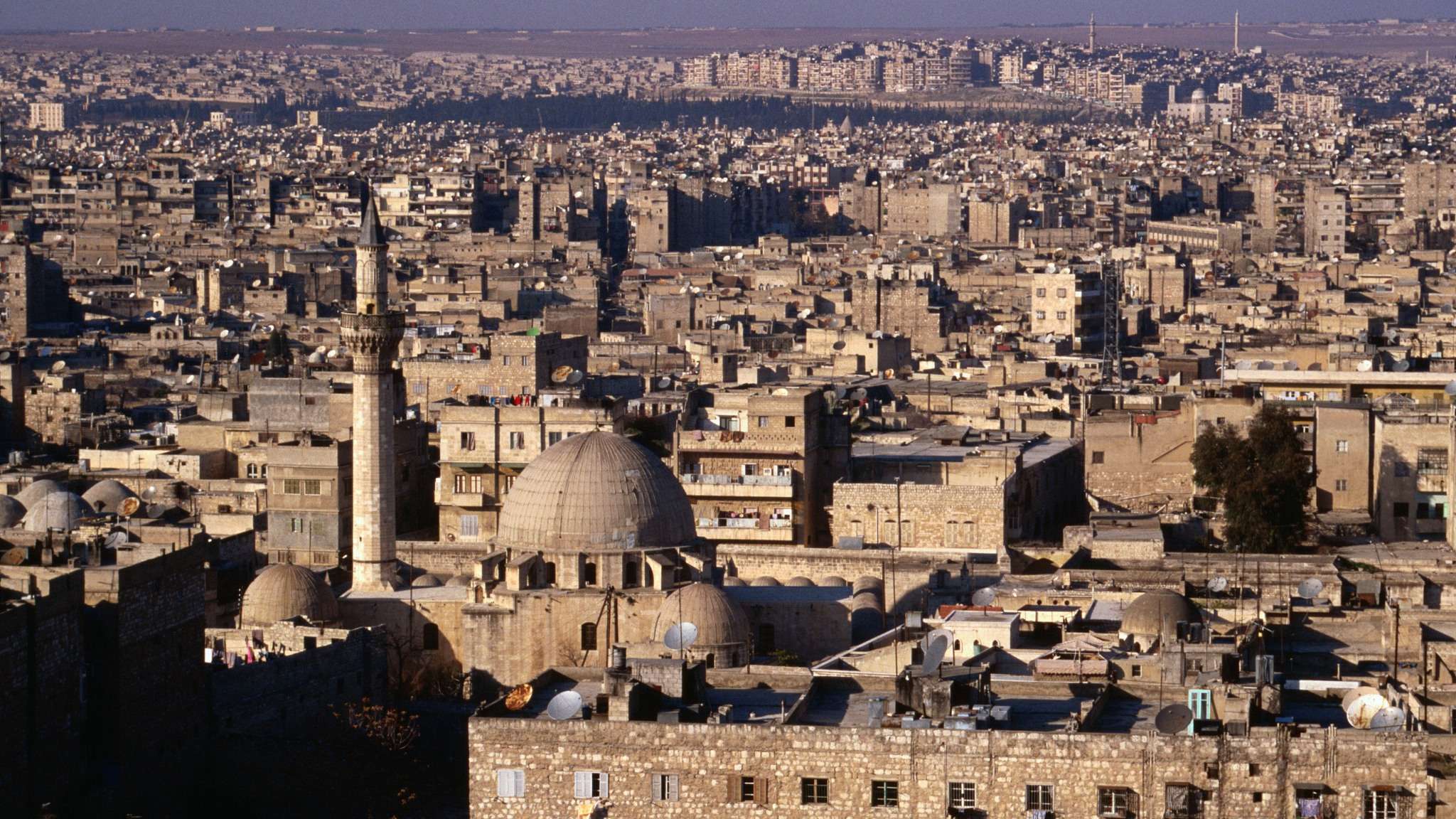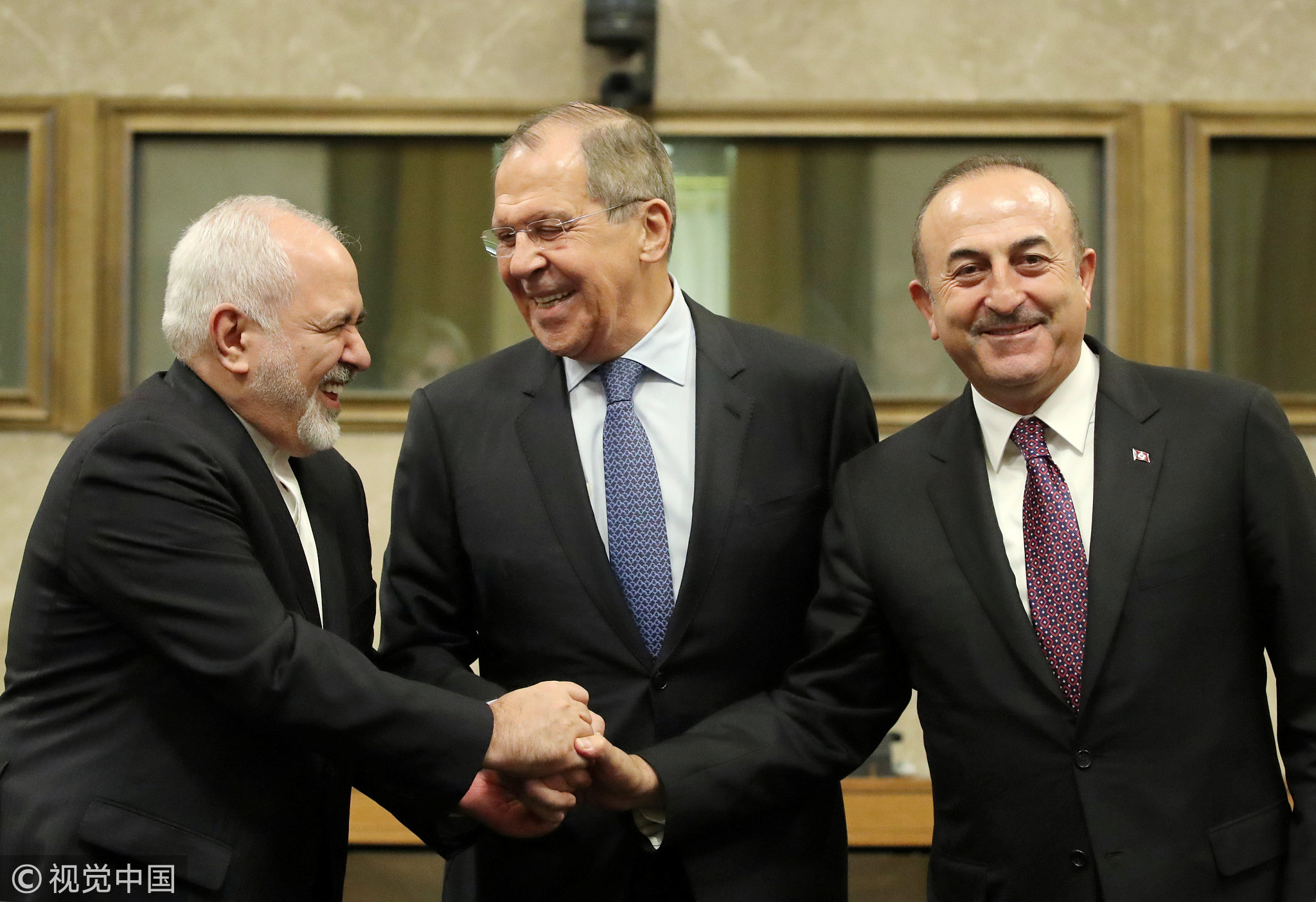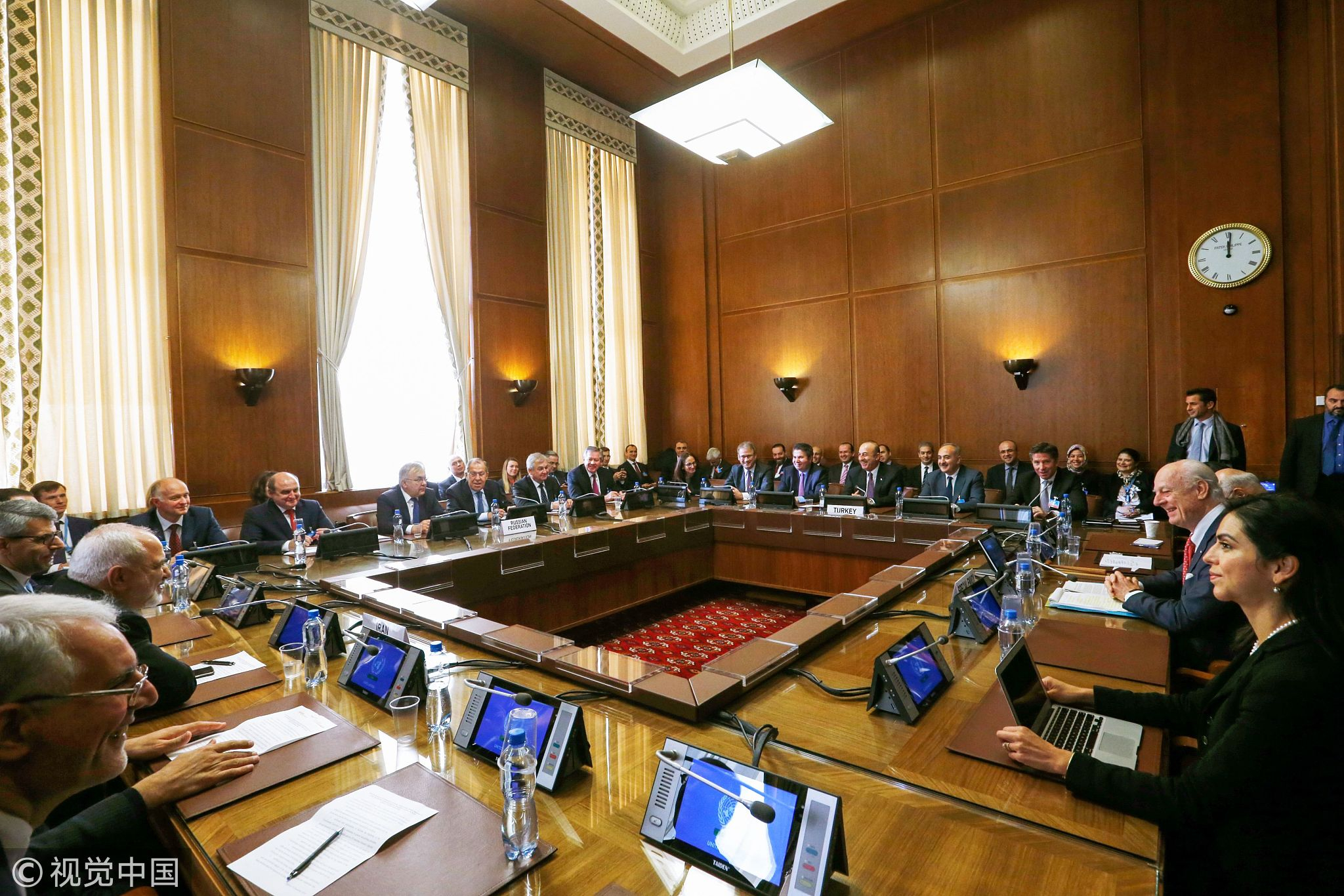
Opinions
12:38, 20-Dec-2018
Opinion: Forming a Syrian constitutional body is no easy task
Updated
12:00, 23-Dec-2018
Wang Jin

Editor's note: Wang Jin is a research fellow at the Charhar Institute and at the Northwest University of China. The article reflects the author's opinion, and not necessarily the views of CGTN.
Russia, Iran and Turkey failed to agree on the makeup of a UN-sponsored Syrian Constitutional Committee (SCC), although they continued their call for another meeting early next year to facilitate the peace process in Syria.
The SCC, which was first advocated by Russia in January's Sochi Conference, was defined as a committee for "drafting constitutional reforms as a contribution to the political settlement under the UN auspices in accordance with the Security Council Resolution No. 2254."
According to the consensus by Russia, Iran, Turkey and the UN, the SCC will be divided into three equal groups representing the Syrian government, opposition factions, and civil groups. Despite external support for the SCC plan, the Syrian government and the opposition groups are unlikely to accept the proposal.
First, the Syrian government's seats in the SCC may not reflect its superior status in the civil war. The government forces have launched several major offensives this year and successfully retook some places of geopolitical significance, including Eastern Ghouta, Daraa and Qunaytirah, and are closely monitoring the rebel-held Idlib Province.

Foreign Ministers from Russia, Turkey, and Iran shake hands after talks on forming a constitutional committee in Syria at the United Nations in Geneva, Switzerland, December 18, 2018. /VCG Photo
Foreign Ministers from Russia, Turkey, and Iran shake hands after talks on forming a constitutional committee in Syria at the United Nations in Geneva, Switzerland, December 18, 2018. /VCG Photo
According to the SCC plan, the Syrian government will be treated equally to rebels and opposition factions in the committee. This means the government forces' dominant status in the civil war could not be proportionally reflected in the SCC seats, and thus the administration of President Bashar al-Assad is unlikely to accept it.
In fact, the Syrian government has been harshly criticizing the SCC proposal since it was first introduced at the Sochi conference. Local media reported that the Syrian government will not accept the SCC unless it occupies a majority of seats in it.
Secondly, the formation of SCC means an intensified internal competition among different opposition groups. Within the existing peace process framework, the U.S. and Europe are treating Syrian opposition forces as internally unified and coherent units.
However, the internal divisions among different opposition factions might be even more salient than that with the Syrian government. Military hostilities among various rebel groups, such as the Free Syria Army, Jaish Al-Islam, Fatah al-Islam and Hayat Tahrir al-Sham and other militant groups, often lead to internal conflicts.
Meanwhile, given their huge divisions, no single leadership could unite these opposition groups. To select 50 members from different opposition forces into the SCC means some factions may become more influential with others being marginalized. Given their mutual distrust and internal competitions, it might not be an easy task to mediate among these forces.

A general view of a meeting on forming a constitutional committee in Syria, at the United Nations Offices in Geneva, Switzerland, December 18, 2018. /VCG Photo
A general view of a meeting on forming a constitutional committee in Syria, at the United Nations Offices in Geneva, Switzerland, December 18, 2018. /VCG Photo
Thirdly, although the UN, Russia, Turkey, and Iran are respected in the SCC formation process, their feelings of being respected varies. Russia, as the first advocate of the SCC, is regarded as dominant in the process. The UN's role in mediating between the Syrian government and opposition groups is accepted by different parties. Turkey is a major supporter of rebel forces and could win more influence in the SCC formation.
Iran, however, is locked in an embarrassing quagmire. Since the unrest erupted in early 2011, Iran has been a major supporter of the Syrian government and is regarded as the major backbone for Assad's military victory. Iran's Islamic Revolutionary Guards and the Shia militant groups Tehran backs are still playing an important role in Syria.
However, under the SCC plan, Iran can only exert its influence through its assistance to the Syrian government over the selection of SCC candidates. Therefore, it is very difficult for Tehran to mediate in the SCC formation.
The very fundamental problem of the SCC formation is that the committee could not reflect the military dominance of the Syrian government and Iran's influence, while the internal divisions among Syrian oppositions are also hampering the peace process. These difficulties are just a few obstacles facing the Syrian peace process. There is still a long way to go before peace is eventually realized in the war-torn country.
(If you want to contribute and have specific expertise, please contact us at opinions@cgtn.com.)

SITEMAP
Copyright © 2018 CGTN. Beijing ICP prepared NO.16065310-3
Copyright © 2018 CGTN. Beijing ICP prepared NO.16065310-3